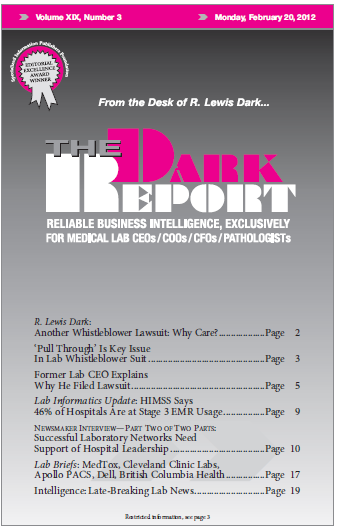CEO SUMMARY: Now comes a whistleblower lawsuit in federal court with the claim that, in the 2007 contract between UnitedHealth Group and Laboratory Corporation of America, LabCorp’s discounted lab test prices were a kickback that violated Medicare law. LabCorp has denied the allegations and says it complies with all laws. Legal experts wonder if the …
‘Pull Through’ Is Key Issue in Lab Whistleblower Suit Read More »
To access this post, you must purchase The Dark Report.


